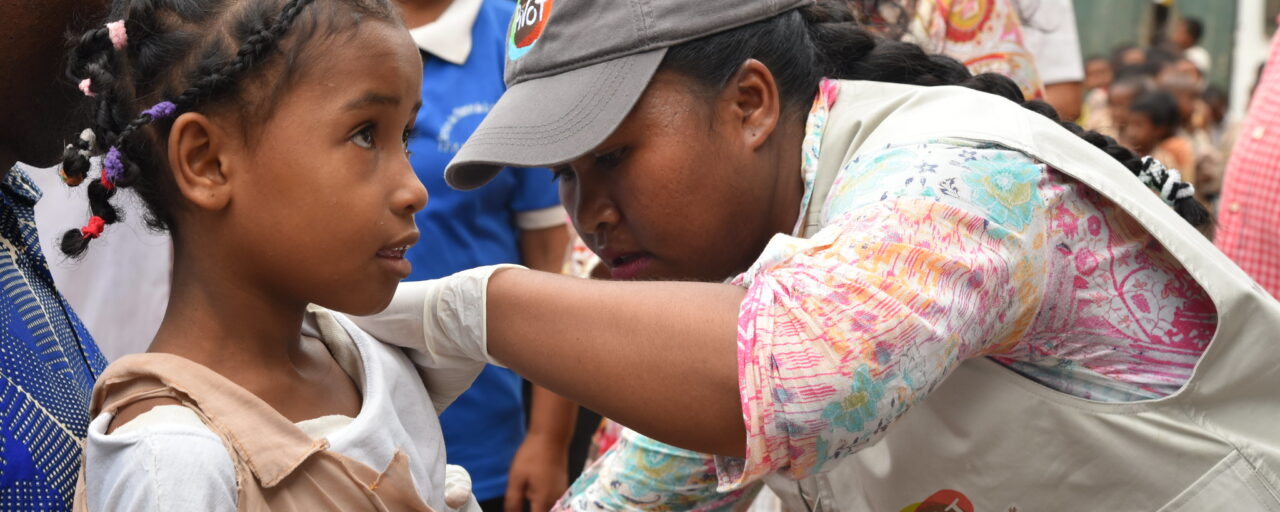By: Wagner Foundation Founder and President, Charlotte Wagner
April 6, 2025
The recent U.S. freeze on foreign aid, coupled with ongoing budget cuts, threatens to unravel decades of progress in global health and international development, putting millions of lives at risk and potentially compromising America’s own health security. As an organization deeply involved in health systems strengthening and development, we are witnessing firsthand how this decision creates ripple effects that extend far beyond our borders.
The ramifications of the aid freeze are severe and wide-ranging. Organizations like PIVOT, which partners with Madagascar’s Ministry of Public Health to transform community, primary and hospital level care in rural, underserved areas, are already seeing the impacts. Gaps in funding will impact the availability of essential medicines, especially antimalarials, as well as support services to community health workers and essential health care workers, impacting critical programs for women and children under 5. This aid freeze is also impacting research and country-wide data collection efforts. This will make it harder to keep tabs on emerging disease trends and understand progress on core public health issues.
Partners In Health, another prominent organization focused on global healthcare improvement, projects a troubling rise in maternal and child mortality rates. Pregnant and breastfeeding mothers living with HIV may soon lose access to life-saving medications, increasing the risk of transmission to their children. The absence of consistent funding could exacerbate the spread of drug-resistant diseases. For instance, the (organization formerly known as) U.S.A.I.D estimates:
– Up to 18 million additional cases of malaria per year, and as many as 166,000 additional deaths;
– 200,000 children paralyzed with polio annually, and hundreds of millions of preventable infections;
– one million children not treated for severe acute malnutrition, which is often fatal, each year;
– and more than 28,000 new cases of infectious diseases such as Ebola and Marburg every year.
These stories illustrate the severity of this crisis and underscore the indispensable role that ongoing aid plays in sustaining life-saving interventions and fostering progress in healthcare delivery.
Wealthy nations, including the United States, hold both a moral and ethical obligation to contribute to global well-being. Though U.S.A.I.D comprises only about 1.2% of the federal budget, its impact is profound. The US is the largest single-country contributor to aid in the world, making this small investment a lifeline for millions, helping to prevent disease outbreaks, strengthen health systems, and build crucial partnerships that ultimately enhance everyone’s safety and well-being.
The COVID-19 pandemic serves as a sobering reminder that infectious diseases know no borders. When we assist other nations in building robust health systems and disease surveillance capabilities, we create early warning systems that, in turn, help protect American lives. The infrastructure established through U.S.A.I.D. has proven crucial in identifying and containing potential pandemics before they approach our shores. For example, the collaborative efforts in global vaccination campaigns have curbed infectious diseases, underscoring how foreign aid from developed countries, including the US, directly contributes to our safety.
Foreign aid transcends the notion of charity; it is a strategic investment in global health stability. By fortifying health systems in lower-income countries, this funding enhances their capacity to tackle, and in some cases prevent future crises. It improves infrastructure, trains healthcare professionals, and accelerates the development of essential services, thus bolstering resilience and adaptability.
We must look to build not break. Our future relies on our ability to build resilient systems that can ensure our collective health and safety. Disruption is dangerous, and the stakes are now higher than ever. Each day of delay puts more lives at risk and complicates future recovery efforts, which will increasingly become more arduous and costly. We owe it to those in need, both at home and abroad, to stay the course and uphold our commitment to promoting global public health and security.
